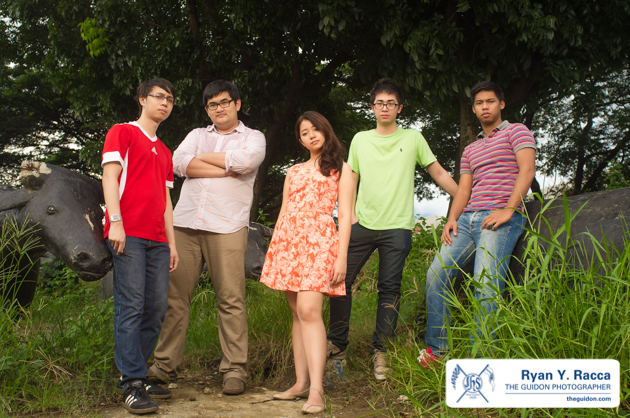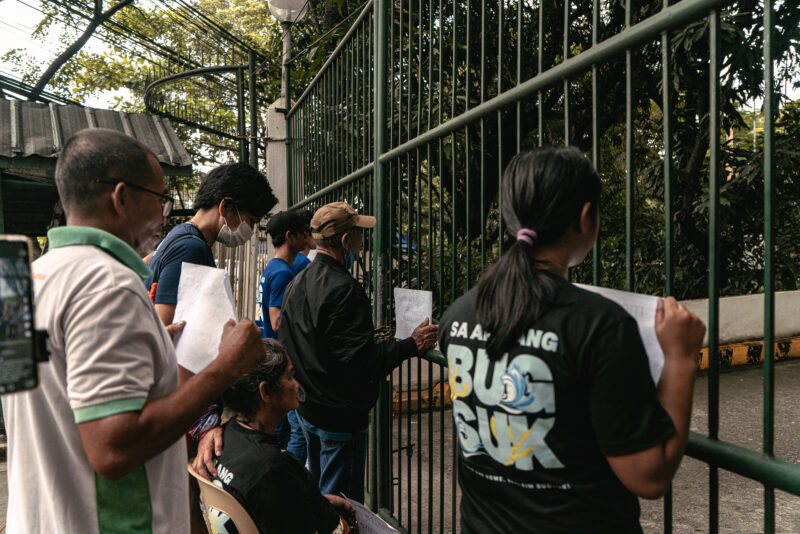When travel magazines feature the Philippines, the focus is usually different versions of the same theme: White sand beaches and deep blue waters. In this island paradise, the sun is high, the waves are cool and the coconut juice is always sweet. However, this is a place that few Filipinos have seen in real life. The real Philippines isn’t always as postcard-ready, nor does it have only one face. As Kamusta? Magazine sets out to prove, there is so much more we’ve yet to discover. Kamusta? is an online travel publication created by five recent Ateneo graduates. Barely six months after its launch on January 26, 2013, the magazine has already been nominated for the Globe’s Tatt Awards in the category of “Young Star Future Perfect: Blog of the Year.” The magazine explores Philippine culture and destinations with both open and critical eyes. With content that goes far beyond the usual face of Philippine tourism, Kamusta? has brought a new meaning to getting lost.
Point of departure
Kamusta? Magazine began when Ceej Tantengco (AB Comm ‘12) and Den Fajardo (BFA ID ‘12), talked about pursuing their journalistic dreams fresh out of college. As Philippine travel writing left much to be desired, they wanted to bring something new to the table. “The Philippines in the magazines was different from the Philippines that we knew, that we saw every day. [We wanted to present] little slices of everyday Philippine life,” explains Tantengco, the Editor-in-Chief. Fajardo took the role of the magazine’s Creative Director. Soon, Managing Editor Jules Jurado (BS ME ‘13), Photography Editor Joseph Angan (BS PS-MSE ‘12) and Photographer-at-Large Ean Dacay (BS CTM ‘12) completed the team. “We’re all from The GUIDON and I guess we were [already familiar] with [one another],” Dacay explains. The magazine’s name says a lot about the purpose it serves. “It’s just one word, but it already says so much about our culture as a warm, open kind of people who are curious,” says Tantengco. An online magazine, Kamusta? has no plans of publishing in print. Tantengco insists that staying on the Internet plays on the strengths of the publication and what it can offer. “It’s so good to be just online because you reach so many people,” she says. Cheryl Borsoto, an instructor at the Communication Department, agrees. “Online media is changing the nature of travel writing,” she says. Articles and blog posts online about travel destinations come from several sources, giving people cause to favor them over official press releases. Social media also plays a huge role in the success of online publications. Fajardo shares in a mix of English and Filipino, “Especially when we started, we worked really hard on [our social media platform], to promote and to tell people about Kamusta?.” Aside from social media and the Internet, the boom in local tourism has also boosted Kamusta?’s relevance. “All the [domestic tourism] bar graphs from last year were already broken before June [2013],” explains Jurado. As more people than ever are looking for places to explore, Kamusta? is stepping in to be their guide.
Life’s a beach
With many travelogues focusing on the Philippine beaches, travel writers are challenged to come up with content that sets them apart. For Kamusta?, this meant two things: Accuracy and accessibility. Given their backgrounds in student journalism, it’s understandable that the Kamusta? team has sought to color their presentations of the Philippines with history and depth. Boracay, for example, ranked 2nd in Travel + Leisure’s “The World’s Best 2013” in the category of Top 10 Islands. Kamusta?’s feature on Boracay, on the other hand, revolved around the Ati, the island’s marginalized indigenous people. This isn’t to say that Kamusta? depicts the Philippines in a negative light. Their approach is that of a local: honest about both the good and the bad sides of his homeland. As Tantengco put it, their way of packaging information brings their readers closer to reality. “We want to show that all [of] these places you’ve been putting aside are actually very rich in culture. This is what we want [our readers] not only to discover, but also to appreciate,” adds Jurado. This dedication to depicting a different side of the Philippines is exactly what draws Kamusta?’s readers in. Of the kind of travel she reads about in Kamusta?, environmental science senior Andie Reyes says, “It’s really about immersing yourself in the culture and learning something new.” The work of travel writers entails a certain responsibility to the tourism industry. While Kamusta? is able to provide realistic information, Borsoto warns that not all accounts of personal travel experiences should be taken as they are. “The public must also be warned to take the reviews with a grain of salt, as experiences and opinions can be very subjective,” Borsoto explains.
Let’s get lost
With only five people and no capital whatsoever, starting up and running a magazine was no easy task for the Kamusta? team. For one thing, they had to cut costs in order to pay their web developers and sustain the publication. “Medyo goodbye suweldo siya at first (At first, it really ate up our salaries),” Tantengco says. At one point, she and Fajardo were eating their meals at convenience stores every day to minimize expenses. Juggling their day jobs with the magazine also proved to be challenging given the amount of work that had to be done. The evening before an important medical exam for their jobs at GMA News, Tantengco and Fajardo stayed up all night to prepare for the official launch of the website. The following morning, both scored as hypertensive. “We failed a medical exam for this,” recalls Tantengco with a laugh. In spite of the difficulties, the team agrees that the unforgettable experiences make up for all those sleepless nights. One such experience was a trip to Kalinga to visit famed mambabatok (tattoo artist) Apo Fang-Od. Some editorial team members and contributors had to ride atop the roof of a jeepney on their way up a mountain. As their article put it, the secret to toploading is “to hold on to anything stable.” Terrifying as it was, the panoramic view of the mountain province that this provided was breathtaking. The team also got a healthy dose of the Sinulog experience while in Cebu. This annual festival held on the third Sunday of January is known for its colorful street parade and beer-soaked after parties. According to Tantengco, a member of the editorial team went off with a group of mountaineers during their stay. Later that night, the team found the said editor shirtless and very much intoxicated. To this day, a collection of unflattering pictures immortalizes his misadventures.
Kamusta, Kamusta?
At present, Kamusta? is happy to be delivering substantial content to its readers. “Even if we don’t win or make it big the way some blogs have, I’m already proud of what we’ve done. More than being nominated [for the Globe Tatt Awards], it feels good when people message you [that they appreciate your work],” says Tantengco, prior to finding out that they came in second in the category they were nominated for. The online magazine is looking forward to expansion. Fajardo says, “What we’re focusing on is content and networking with different possible partner companies for exposure.” They’re hoping to get more people in on the team so they can travel more and cover more places. With more locations to discover and more barriers to break, the Kamusta? team’s work is far from done. But as Jurado put it, “We are on our way.” Updated: 8:50 PM, August 4, 2013







